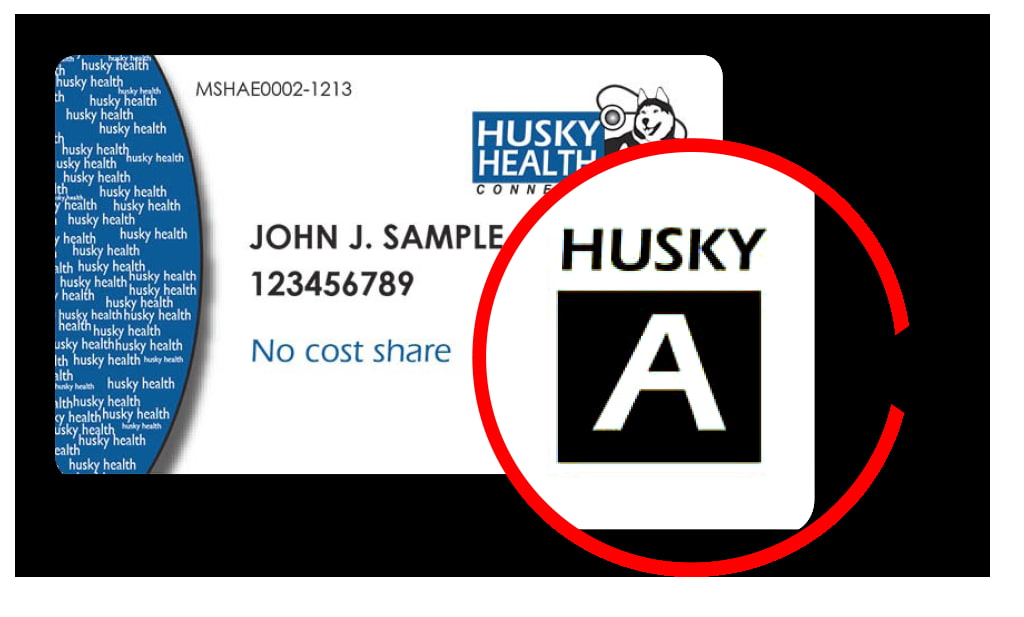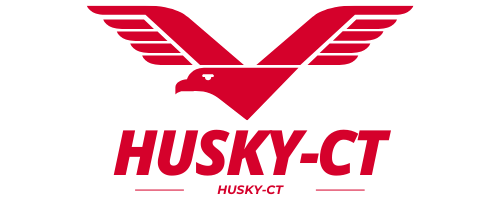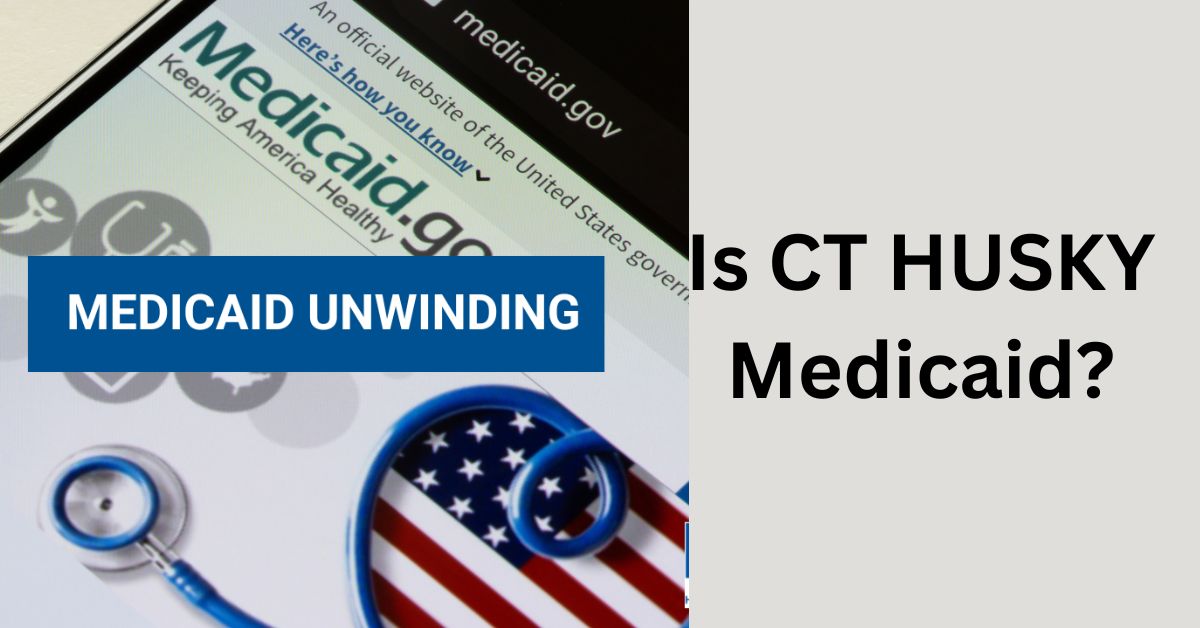Unveiling HUSKY Health – Is CT HUSKY Medicaid?
Are You seeking access to essential healthcare services? This article promises answers and a deeper understanding of how HUSKY Health weaves itself into the fabric of medical care.
Yes, of course! It is Connecticut’s Medicaid program, provided by both the state and federal governments. This program helps low-income individuals and families find healthcare facilities essential to their well-being.
We will discuss who is eligible for HUSKY Health, what services it covers, and how to apply. So let’s start a healthy journey with us!
A Closer Look At The CT Husky Medicaid Health Program:

HUSKY stands for “Healthcare for Uninsured Kids and Youth,” it’s more than just an acronym—it’s a lifeline for many in the state.
Medicaid is a federally financed and state-run program that offers medical insurance to qualified people and families with low incomes. It encompasses a range of medical services, including hospital stays, doctor visits, prescription medications, and preventive care.
The chart below shows the median Medicaid income eligibility limitations for adults and kids as per Federal Poverty Level (FPL), according to statistical research on Statista:
According to the statistical survey of the United States of America, total and state Medicaid spending growth from 2000 to 2023 is:
Why Should You Consider a Husky Health Program? – Take advantage of services that It Provides!

Let’s explore the array of benefits that the CT HUSKY Medicaid program provides:
Comprehensive Medical Coverage:
HUSKY Health provides extensive medical services to ensure participants can access the essential healthcare services they need.
Primary Care Physician:
Enrollees in the program are assigned a primary care physician (PCP). Having a designated PCP fosters continuity of care, ensuring participants have a healthcare professional who oversees their medical needs and coordinates specialist referrals if necessary.
Prescription Medications:
The program covers prescription medications, enabling participants to access necessary drugs without financial barriers. This ensures that individuals with chronic conditions can manage their health effectively through medication adherence.
Maternity and Child Health Services:
This program provides comprehensive maternity care, prenatal visits, labor and delivery coverage, and postpartum care. Additionally, children covered under the program receive essential pediatric services, immunizations, and developmental screenings.
Dental and Vision Care:
Dental and vision care are integral components of HUSKY Health, with coverage extending to dental check-ups, cleanings, X-rays, and vision exams. In addition, these services contribute to overall health and quality of life.
Behavioral Health Services:
Recognizing the significance of mental health, the program includes coverage for behavioral health services, counseling, therapy, and treatment for substance abuse disorders.
Specialized Care:
HUSKY Health ensures that participants with special healthcare needs, including individuals with disabilities, access specialized medical care, therapies, and assistive devices.
Hospitalization and Emergency Care:
Moreover, this program includes hospital stays, emergency room visits, and urgent care services, providing participants with the assurance that they can seek medical attention when needed.
Access to Specialists:
Enrollees can access a network of specialists for specialized medical consultations and treatments, ensuring that complex health conditions are addressed appropriately.
Cost Savings:
Accordingly, for eligible individuals and families, the CT HUSKY Medicaid program eliminates or significantly reduces out-of-pocket costs for medical services, reducing the financial burden of healthcare expenses.
Wellness and Health Promotion:
The program emphasizes health education, wellness programs, and resources that empower participants to make informed decisions about their health and engage in preventive practices.
Early and Periodic Screening, Diagnosis, and Treatment (EPSDT):
Children under age 21 eligible for HUSKY Medicaid are automatically enrolled in EPSDT, which provides comprehensive health care services, including preventive care, well-child visits, and treatment for chronic conditions.
Who Is Eligible For The CT Husky Medicaid Health Program? – Everything You Need to Know!

Eligibility Criteria:
The following husky healthcare program will provide complete information for the eligibility criteria based on your age, income, family size, and other factors.
Furthermore, If your household income is above the income limits for HUSKY Medicaid, you may still be eligible for the program if you have certain medical expenses. You can contact the Department of Social Services (DSS) for more information about this option.
HUSKY A – Medicaid for Low-Income Children and Adults!
HUSKY A provides comprehensive Medicaid coverage for low-income children and adults, ensuring access to essential healthcare services.
Target Population:
- Children: Under the age of 19.
- Parents and Caretaker Relatives: Adults responsible for children in their care.
- Pregnant Women: Expectant mothers seeking maternity and postpartum care.
- Adults without Dependent Children: Individuals aged 19 to 64 without dependent children.
Income Limit:
The income limit for HUSKY A varies based on household size and can be around 196% to 323% of the federal poverty level (FPL) for children and pregnant women. But the income limit can be about 155% to 205% for parents and caretaker relatives.
HUSKY B (CHIP for Children):
This plan, also known as CHIP, offers healthcare coverage for kids from relatively higher-income groups than those eligible for HUSKY A.
Target Population: Although the children under 19 whose family income exceeds the HUSKY A income limits but falls within the CHIP limits can get benefit through this program.
Income Limit: In contrast, HUSKY B generally has slightly higher income limits than HUSKY A, often around 323% to 323.5% of the FPL for children.
HUSKY C (Medicaid for the Aged, Blind, and Disabled):
HUSKY C provides Medicaid coverage for the aged, blind, and disabled, offering specialized medical care and support.
Target Population:
- Elderly Individuals: Aged 65 or older.
- Blind Individuals: Individuals with a visual impairment.
- Disabled Individuals: Individuals with disabilities that meet specific criteria.
Income Limit: Although, the income limit for elderly and blind individuals under the HUSKY C program can be around 300%, for disabled individuals aged 18-64, the income limit will be 74% of FLP.
HUSKY D (Medicaid for the Aged, Blind, and Disabled):
HUSKY D offers Medicaid coverage for individuals aged 18 to 64 who are blind or have a disability.
Target Population:
- Blind or Visually Impaired Individuals: Those with visual impairments.
- Disabled Individuals: Adults aged 18 to 64 who have disabilities that meet specific criteria.
Income Limit: This program provides an income of 74% for Blind and disabled people.
A Comprehensive Look at the Comparison Table of Husky Plans:
| HUSKY Health Category | Key Features | Eligibility Criteria | Coverage Highlights |
| HUSKY A | Coverage for low-income children and adults | Connecticut residentsIncome within limits for household size U.S. citizens and nationals, Age, pregnancy, and parent status apply | Doctor visits, hospital care, and preventive services |
| HUSKY B (CHIP) | insurance protection for kids from somewhat wealthier households | Connecticut residentsIncome within CHIP limitsU.S. citizens | Pediatric care, dental and vision care, behavioral health |
| HUSKY C | Coverage for the aged, blind, and disabled | Connecticut residents Age 65+, blind, or disabledIncome and asset limits may applyU.S. citizens | Long-term care, home health, medical equipment |
| HUSKY D | Coverage for the aged, blind, and disabled | Connecticut residentsAge 18-64, blind, or disabledIncome and asset limits may applyU.S. citizens, | Medicaid for Employed Adults with Disabilities (MEAD) |
How do I apply for CT husky Medicaid? – A step By step Guide!

Indeed, you can apply for the Medicaid program in the following three ways:
Apply Online:
The quickest and most practical method of applying is through the Access Health CT website, the state’s official health insurance marketplace. Follow these steps:
- Create an Access Health CT website account.
- Fill out the online application with accurate information about your household, income, and other relevant details.
- Upload the necessary documents directly to your online application.
Apply In-Person:
If you’d like to apply in person, visit a local Department of Social Services office or a designated community organization assisting with applications. Also, a representative will assist you during the application procedure and help you complete the necessary forms.
Apply by Phone:
Lastly, you can also apply by phone through Access Health CT’s Call Center at (1-855-805-4325). You may complete the application over the phone by dialing the appropriate number and interacting with a person.
Summing-Up:
So, as the question “Is CT HUSKY Medicaid?” arises, the answer is even louder: Yes, it’s more than just a program—it’s a promise of a healthier, more equitable future for all in Connecticut.
From offering comprehensive medical coverage to low-income children and adults to providing specialized care for the elderly, blind, and disabled, HUSKY Health demonstrates its dedication to addressing the diverse healthcare needs of the population.
Frequently Asked Questions:
1. How do I know which part of HUSKY Medicaid I’m eligible for?
The Department of Social Services (DSS) in Connecticut can be contacted to learn more about the different parts of HUSKY Medicaid and to determine which domain you are eligible for.
2. How long does it take to get approved for HUSKY Medicaid?
The application process for HUSKY Medicaid can take several weeks. However, the DSS will process your application as quickly as possible.
3. How often do I need to renew my CT HUSKY Medicaid coverage?
HUSKY Health coverage needs to be renewed periodically. The renewal process ensures that you continue to meet the eligibility criteria.





